Compare Oven brands in New Zealand at Canstar Blue. Bosch, Miele, Smeg, Beko, Fisher & Paykel, Samsung, Westinghouse and Haier were compared on Overall Satisfaction, Cooking Performance & Reliability, Design, Ease of Cooking, Ease of Use, Functionality & Features and Value for Money.
See our Ratings Methodology.
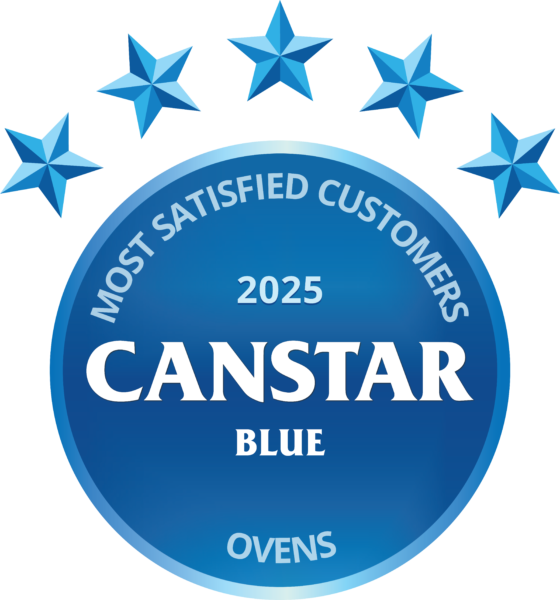
Bosch’s ovens are rated No.1 by Kiwi consumers, earning the best ratings of any brand in our research and winning Canstar Blue’s 2025 Ovens Award.

Our review compares oven brands on customer satisfaction, so you can discover what other Kiwis think about our compared oven brands before you go ahead and purchase a new appliance. Think of it like asking hundreds of your closest friends and family which ovens they think are best!
Canstar Blue surveyed 1041 Kiwis who have ovens installed in their homes and had used them during the past 12 months and asked for their feedback on their oven brands.
Respondents rate their satisfaction with their oven brands from zero to ten, where zero is extremely dissatisfied and ten is extremely satisfied. Brand satisfaction was rated by respondents on the following criteria:
The winning brand is the one that receives the highest Overall Satisfaction rating once all the scores from the Overall Satisfaction criteria are combined and averaged.
Brands must have received at least 30 responses to be included, so not all brands available in the market have been compared in this survey. The brands rated in this survey are listed below in order of best overall satisfaction.
Find more information on our Most Satisfied Customer methodology.

Sitting atop our awards table, Bosch wins our Ovens Award with a near perfect set of ratings. Bosch is the only oven brand to earn a top 5-Star rating for Overall Satisfaction, and across our other ratings categories it has a further four 5-Star scores, including for Design and Ease of Use.
For Cooking Performance & Reliability and Value for Money Bosch has great 4-Star ratings.
German appliance manufacturer Bosch is synonymous with quality and great product design, and it’s also the winner of our most recent Dishwashers Award.
In NZ, Bosch retails three oven ranges: the Series 4, Series 6 and Series 8. Most of its oven models are designed for built-in kitchens, and across its three ranges it offers 19 built-in models and two freestanding ovens.
Bosch’s premium models, the Series 8, are all designed for built-in kitchens and are manufactured in Bosch’s German factory. Models in the Series 8 range feature options such as steam cooking functions and built-in microwaves.

Placing second on our award ratings, Miele earns a 4-Star Overall Satisfaction rating, plus further 4-Star ratings across three other categories. Miele earns top ratings for Cooking Performance & Reliability and Ease of Cooking.
The brand earns its lowest rating, 3 Stars, for Value for Money, which is a reflection of Miele ovens’ higher price points.
Miele is a German premium brand that manufactures a wide range of home appliances. Its range of built-in ovens in New Zealand encompasses regular convection ovens as well as models with steam-assisted and microwave cooking functions, plus app-enabled smart appliances with in-oven cameras.
![]()
Although Smeg places third overall, it achieves a great set of 4- and 5-Star ratings. Indeed, it earns three top 5-Star ratings, more than all the other oven brands on our table combined, except for Bosch, our winner.
Smeg has 5-Star ratings for Design, Functionality & Features and Value for Money, and 4-Star scores across all other categories.
Designed and built in Italy, Smeg is a premium appliance brand that has built a reputation for delivering great style as well as performance. Smeg offers a wide range of ovens in New Zealand. It includes over 35 different models of built-in ovens and over 40 freestanding models, in both gas and electric. Smeg ovens are available in various colours and styles.
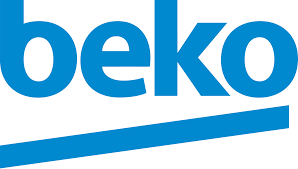
Beko holds the distinction on our awards table of being one of only three brands not to fall below a 4-Star rating. The Turkish appliance company earns a clean sweep of great 4-Star scores across all our ratings categories.
Beko is one of Europe’s biggest appliance manufacturers. All of its ovens are made in Europe and come with a five-year warranty. In New Zealand, it sells a range of ten freestanding ovens, plus ten built-in ovens.
![]()
Fisher & Paykel is a brand synonymous with appliances in NZ, and in this year’s ratings it comes close to achieving a clean sweep of great 4-Star ratings across all categories. However, Fisher & Paykel’s run of fours is broken by a two 3-Star ratings, which it achieves for Cooking Performance & Reliability and Value for Money.
Fisher & Paykel’s range of built-in ovens encompasses over 50 models across four series: the 5, 7, 9 and 11 Series, and three design styles: Minimal, Contemporary and Professional. Features include basic convection ovens through to ones that offer convection alongside steam or microwave cooking and pyrolytic self-cleaning.
Fisher & Paykel’s range of freestanding models is somewhat smaller, just 12 ovens, which feature Classic, Contemporary and Professional styles across a number of capacity sizes, with gas and electric hobs.
![]()
A former back-to-back winner of our award, in 2022 and 2023, this year Samsung slips on our table, although still earns a 4-Star rating for Overall Satisfaction.
In addition to its four 4-Star ratings, Samsung earns three 3-Star scores, for Design, Cooking Performance & Reliability and Value for Money.
Samsung is known for smart appliances and industry leading technology, and its ovens are no different. Its range covers just five models of built-in wall ovens, which boast features such as catalytic self-cleaning, steam-assisted cooking and AI-assisted technology.

Although it has a 4-Star rating for Overall Satisfaction, Westinghouse scores predominantly 3-Star ratings. However, it’s worth noting that a 3-Star rating is not a measure of consumer displeasure. Rather Westinghouse’s 3-Star ratings for Value for Money and Design reveal its oven customers are happy with their levels of consumer satisfaction in those categories.
Westinghouse is an Australian brand that has been producing quality cooking appliances for over 60 years. Here it offers a choice of 22 built-in ovens and 21 freestanding models. Features available include pyrolytic cleaning and steam-assisted cooking. Some Westinghouse ovens also feature an AirFry mode, to replicate the cooking speed and intensity of air fryers.

Rounding out our awards table, Haier scores 3 Stars across all categories, except Value for Money and Design, for which its customers award it great 4-Star ratings.
Haier was founded in China in 1984 and is the owner of Fisher & Paykel. Here in NZ, the brand is often considered a cheaper alternative to Fisher & Paykel products, delivering great design and features at an affordable price.
Its range of built-in ovens comprises 26 appliances, boasting features such as pyrolytic cleaning, air frying, rotisseries and even wi-fi. Haier’s range of freestanding models is limited to ten models.

Not all brands in the market qualify for our ratings (based on minimum survey sample size), but that doesn’t mean they’re not worth considering. Here are more brands to check out before making a purchase decision.
Belling is an English appliance brand, and all its ovens are made in the UK. Here it sells a wide range of single and double standalone stoves and multi-function built-in ovens.
Electrolux is a Swedish appliance company. It’s a premium brand that sells nine built-in oven models that boast features such as steam-assisted cooking and pyrolytic cleaning. It also has one freestanding model, the 90cm UltimateTaste 900 cooker, available in electric or gas/electric.
Parmco won our inaugural Ovens Award in 2021, and just missed out on qualifying for this year’s award. Founded in NZ in 1987, Parmco produces European designed and energy-efficient appliances that come with industry-leading warranties of up to seven years on most products. Parmco’s warranties are backed by a nationwide after-sales, technical and stock support network. Parmco sells a wide range of built-in and freestanding ovens.
Whirlpool is an American appliance manufacturer. In New Zealand it only retails built-in ovens. Its ten models offer functions such as steam cooking and pyrolytic cleaning.
An oven is a household workhorse, one that in most homes is used for hours each week. Therefore, it’s no surprise to discover that when it comes to what makes Kiwis content with their cookers, they say performance and reliability are their most important concerns, cited by nearly a third of those in our survey (29%).
Functionality & Features are also key, cited by 27%. However Value for Money is less of a worry. Just 16% cite value as one of their main concerns when it comes to their satisfaction with their choice of oven brand.
Overall, here’s how the consumers in our survey rank the main things they consider when rating their choice of oven:
Even if you’re fairly new to cooking, you should still know that there isn’t just one standard type oven. As with heat pumps and washing machines, there are multiple styles. Below we run through the different types of ovens.
Also known as wall ovens, built-in ovens are the most common type of oven. They are fitted either in a wall space or under a bench. Wall ovens give you a large degree of flexibility when it comes to your kitchen’s layout.
They come in a wide variety of makes and models, from basic ovens with mechanical controls and few cooking modes, to smart ovens with touch displays, smart cook settings and a host of features.
A freestanding cooker is a combination of both an oven and a hob. Free-standing ovens are easy to install and replace, as they are not built into a kitchen’s cabinetry.
When considering a freestanding oven, you need to consider its type of hob, as well the oven. Do you want electric, gas or induction? And how many burners/elements do you need?
Conventional and convection ovens look the same, and can be freestanding or built-in. The difference is that while heat in a conventional oven circulates naturally, a convection oven uses a fan to distribute hot air evenly around the oven cavity.
Most modern ovens are convection ovens and, depending on what you’re cooking, you can switch the oven setting to either fan-bake or conventional bake.
A conventional oven cooking setting is great for cooking slow-baked or simmered meals, such as casseroles, stews and ragus, as well as fatty meats like duck and goose. It’s also great for for baking breads, cakes and puddings.
Fan-forced cooking is very much like air frying, and great for producing crispy food or blasting pizzas with intense heat. Plus, due to the even oven temperature, the function works well when cooking a variety of foods on different racks.
As the name suggests, a toaster oven is a countertop appliance that can grill bread as well as bake food. They are much cheaper to buy than a large conventional oven, and simple to set up, but generally do not offer the same bake quality as their larger counterparts.
Bench-top ovens are similar to toaster ovens, but rather than letting hot air circulate naturally, convection ovens use internal fans, like those found in most freestanding and wall ovens, to distribute the hot air evenly to create a constant temperature. They are more expensive than toaster ovens, but can cook faster, at lower temperatures and deliver better results.
Microwaves are great for heating food rapidly. However, for the most part, they are sub-par when it comes to all-round cooking, as they can’t brown or crisp food and don’t cook evenly – hence the rotating table! Some conventional ovens also have microwave functions, which can be ideal for saving space in small kitchens.
Air fryers have become hugely popular. But despite the name, an air fryer is essentially a small convection oven. Air fryers feature small cooking areas, and powerful heating elements, which deliver fast cooking and crispy results.
There are two types of self-cleaning ovens:
Similar to cooktops, ovens fall under two main categories of energy sources – gas or electric.
Gas ovens are, on average, quite a bit cheaper to buy than electric ovens of similar quality levels, although they come with some drawbacks. Firstly, you’ll need a gas supply. If you already have gas in your home, then it’s fine; if not, gas installation, either bottled or mains, can be costly.
A common complaint about gas-powered ovens is that they tend to have hotspots and uneven heating. But if a gas oven is compatible with your current kitchen set-up and you’re not too fussy, then it could be the oven type for you.
Electric ovens work using heating elements placed on the walls of the oven. These ovens are the most common variety and tend to have a lot more options for cooking your food at the touch of a button. Electric ovens are the easiest to use, easiest to clean and the easiest to achieve even cooking. They are also available in both convection and conventional varieties, so if an electric oven is what you’re after, there’s plenty of choice to be had.
Overall, most modern ovens are electric, as these lend themselves to better results and more versatility.
Conventional and convection ovens look the same, and can be freestanding or built-in. The difference is that while heat in a conventional oven circulates naturally, a convection oven uses a fan to distribute hot air evenly around the oven cavity.
Most modern ovens are convection ovens and, depending on what you’re cooking, you can switch the oven setting to either fan-bake or conventional bake.
A conventional oven cooking setting is great for cooking slow-baked or simmered meals, such as casseroles, stews and ragus, as well as fatty meats like duck and goose. It’s also great for for baking breads, cakes and puddings.
Fan-forced cooking is very much like air frying, great for producing crispy food or blasting pizzas with intense heat. Plus, due to the even oven temperature, the function works well when cooking a variety of foods on different racks. Keep in mind that compared to a conventional oven setting, when using fan-forced you should reduce cooking temperatures by 20°C.
Choosing the type of oven you need, is only the first part. You also need to consider what features and functions you are looking for. Some things you may want to consider are:
If you cook a meal for an hour, including preheat time, you might expect to spend around $0.60 (depending on what your $/kWh rate is with your power provider). The NZ government’s Smarter Homes guide notes modern conventional ovens are well insulated, but only about 10% to 15% of the energy they use actually cooks the food, the rest is just heating the air inside.
Gas ovens are less efficient than electric ones, as they need higher airflows and often have a glow-bar that runs continuously to reignite the gas flame should it blow out.
Convection or fan ovens use about 20% to 30% less energy than conventional ovens, and you can cook more items at the same time because heat is more uniformly distributed. Self-cleaning ovens are more efficient than standard ovens as they have more insulation.
Overall, a microwave is the most energy-efficient type of oven, as it heats food directly. However, the types of dishes you can use them for are limited.
As ovens are not given an electricity star rating, when purchasing one, it pays to check how many watts of electricity it uses. Do you need a 15,000W oven when a smaller 9000W one is enough for your cooking needs? The larger the oven’s wattage the more electricity it will use, so the bigger your bill will be.
Where electricity use is concerned, it always pays to check whether you’re getting the best deal. If you know you regularly use your oven at certain times of the day, why not swap to a provider that offers a free hour of power each day? Your savings could be considerable. To make choosing the best electricity provider easier, Canstar compares them on value and service.
Finding the right oven for you isn’t easy. There’s a lot to consider, such as:
Do you want an oven and stove all in one, and if so, what do you want on the top? Freestanding ovens can include gas, electric, or induction cooktops so if you want a 2-in-1 unit you’ll need to consider which cooktop is best for you as well.
Is a standard oven enough, or would you prefer a double oven or an extra-wide single oven? Bear in mind that larger ovens have bigger, heavier trays that can be harder to take out and clean.
At the other end of the spectrum, a small oven won’t accommodate larger trays and, if you’re cooking a roast for the whole family, you could end up having to cut back on the sides and trimmings!
A standard single oven can easily go under a cooktop or in a wall unit. Double ovens or extra-wide single ovens are more restrictive as to where they can go. Do you have the space in your kitchen to accommodate them?
Are you happy to just chuck your oven on fan bake and be done with it? Or are you a budding home cook that wants precise control and all the bells and whistles? This could include accurate cooking functions for perfect cooks, or smart features such as pyrolytic self-cleaning or wi-fi connectivity.
It’s important to stick within a reasonable budget. But that budget shouldn’t just be set by your available funds.
If you use your cooktop more than your oven, or you’re just not into cooking at all, there’s no point going overboard and getting a top-of-the-line model just because you can afford to. Also, there’s no point saving a few dollars if you plan to use your oven religiously.
Ovens are a big investment and aren’t something you can change easily (or at least cheaply). So you should choose wisely.
It’s not all about performance. Your oven also needs to look good and fit into the wider scheme or look of your kitchen. An oven’s interior design should also be considered, as it impacts its ease of cleaning.
When choosing an oven, there are plenty of little things to consider that can be easily overlooked:

Bruce Pitchers is Canstar NZ’s Content Manager. An experienced finance reporter, he has three decades’ experience as a journalist and has worked for major media companies in Australia, the UK and NZ, including ACP, Are Media, Bauer Media Group, Fairfax, Pacific Magazines, News Corp and TVNZ. As a freelancer, he has worked for The Australian Financial Review, the NZ Financial Markets Authority and major banks and investment companies on both sides of the Tasman.
In his role at Canstar, he has been a regular commentator in the NZ media, including on the Driven, Stuff and One Roof websites, the NZ Herald, Radio NZ, and Newstalk ZB.
Away from Canstar, Bruce creates puzzles for magazines and newspapers, including Woman’s Day and New Idea. He is also the co-author of the murder-mystery puzzle book 5 Minute Murder.
Clean their ovens regularly: 56%
Have a freestanding oven: 44%
Chose an oven with more than basic cooking functions: 25%
Have been inspired by TV baking shows to use oven more: 16%
Electric: 92%
Gas: 8%
Canstar Blue surveyed 2508 New Zealand consumers across a range of categories to measure and track customer satisfaction, via ISO 26362 accredited research panels managed by Pureprofile. The outcomes reported are the results from respondents who had installed and used an oven in their home during the past 12 months. In this case, 1041 New Zealanders.
Brands must have received at least 30 responses to be included. Results are comparative and it should be noted that brands receiving three stars have still achieved a satisfaction measure of at least six out of 10. Not all brands available in the market have been compared in this survey. The ratings table is first sorted by star ratings and then by mean overall satisfaction. A rated brand may receive a ‘N/A’ (Not Applicable) rating if it does not receive the minimum number of responses for that criteria. Brands must have received at least 30 responses to be included. Results are comparative and it should be noted that brands receiving three stars have still achieved a satisfaction measure of at least six out of 10. The ratings table is first sorted by star ratings and then by mean overall satisfaction. A rated brand may receive a ‘N/A’ (Not Applicable) rating if it does not receive the minimum number of responses for that criterion.
The past winners from Canstar Blue’s Oven ratings:
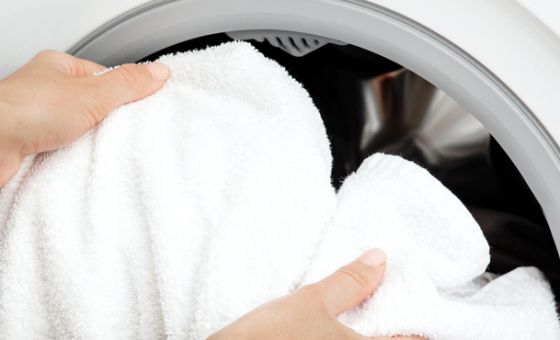
Best-Rated Bottled Gas Suppliers - June 23rd
KEY POINT
According to 452 New Zealand tumble dryer buyers who took part in Canstar’s 2025 Dryer Award survey, LG is the best dryer brand in New Zealand for delivering consumer satisfaction.
If you’re in the …
– Read more
Appliances - March 28th
Why do I need to clean my water bottle/travel mug?
Cleaning your water bottle or travel mug regularly is essential for several reasons:
Hygiene: bacteria, mould, and other microorganisms can accumulate in your water bottle or …
– Read more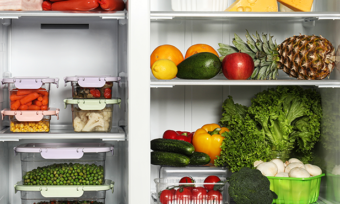
Appliances - March 26th
What is a top fridge-freezer?
A top fridge-freezer refers to a type of refrigerator-freezer unit where the freezer compartment is located at the top of the appliance, above the refrigerator compartment. In this design, the freezer …
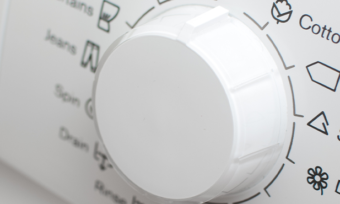
Appliances - March 18th
Why do delicates need to be washed differently?
Delicate items, like silk blouses or lace lingerie, need special care when washing because they’re made of fragile fabrics or have intricate details. Regular washing machines and harsh …
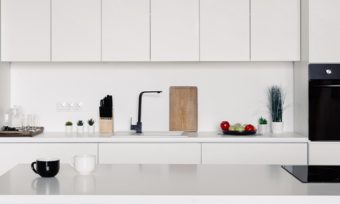
Appliances - February 20th
Kitchen appliances
Air fryers
3.75L Air Fryer ($85)
If it’s your first time buying an air fryer, or you’re not willing to break the bank, consider Kmart’s affordable 3.75L air fryer. Prepare delicious, crispy fries, nuggets and more …